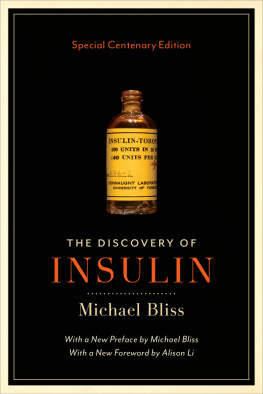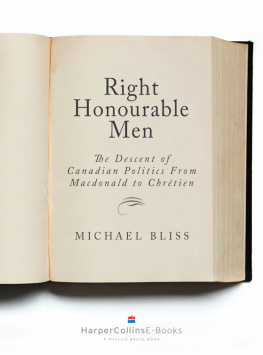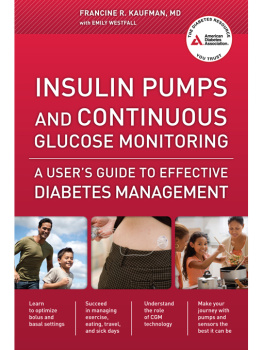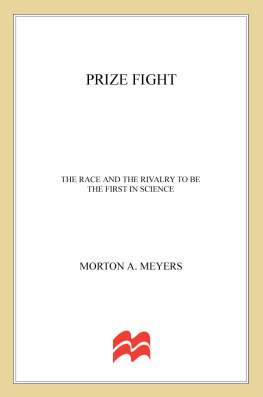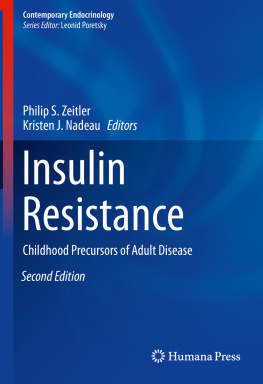
PRAISE FOR
THE
DISCOVERY
OF INSULIN
This book reaches well beyond the story of insulin. It is a timeless chronicle on the pursuit of science, as well as the nature of discoveries and the people who make them.
Jeffrey M. Friedman, Marilyn M. Simpson Professor, The Rockefeller University, and Investigator, Howard Hughes Medical Institute
Beautifully written for both the non-expert and expert, The Discovery of Insulin not only describes the events surrounding that momentous discovery in 1921, but also provides insight into the numerous factors that promote as well as detract from scientific discovery.
Patricia Brubaker, Professor, Departments of Physiology and Medicine, University of Toronto
This book is the definitive history of the discovery of insulin and readers will be captivated by the determination, exasperation, suffering, and ultimate resurrection of individuals. Alison Lis foreword offers tremendous insight into the writing and impact of The Discovery of Insulin incredibly valuable and a pleasure to read!
Shelley McKellar, Hannah Chair in the History of Medicine, Western University
No book before or since, fiction or non-fiction, has affected me as powerfully: I was inspired to enter the specialty of endocrinology and to pursue medical research after reading The Discovery of Insulin. The new edition of this historical masterpiece marking the centenary of insulins discovery fleshes out events and personalities through a narrative that remains as stirring and relevant as ever.
Robert A. Hegele, Jacob J. Wolfe Distinguished Medical Research Chair, Martha Blackburn Chair in Cardiovascular Research, and Distinguished University Professor of Medicine and Biochemistry, Western University
Michael Bliss
THE
DISCOVERY
OF INSULIN
SPECIAL CENTENARY EDITION
With a New Preface by Michael Bliss
With a New Foreword by Alison Li
UNIVERSITY OF TORONTO PRESS
Toronto London
Copyright 1982 The Estate of Michael Bliss
Published by arrangement with McClelland & Stewart Inc., Toronto, Canada. First published in 1982 by McClelland & Stewart Inc.; first paperback edition, 1984, and second paperback edition published by McClelland & Stewart. Twenty-fifth anniversary edition published in 2007 by University of Toronto Press.
Special Centenary edition 2021
University of Toronto Press
Toronto London
utorontopress.com
Printed in Canada
ISBN 978-1-4875-2913-0 (paper)
ISBN 978-1-4875-2915-4 (EPUB)
ISBN 978-1-4875-2914-7 (PDF)
Library and Archives Canada Cataloguing in Publication
Title: The discovery of insulin / Michael Bliss.
Names: Bliss, Michael, 19412017, author, writer of preface.
| Li, Alison, 1963 writer of foreword.
Description: Special centenary edition / with a new preface by Michael Bliss ; with a new foreword by Alison Li. | Includes bibliographical references and index.
Identifiers: Canadiana (print) 20210230975 | Canadiana (ebook) 2021023220X |
ISBN 9781487529130 (paper) | ISBN 9781487529154 (EPUB)
| ISBN 9781487529147 (PDF)
Subjects: LCSH: Banting, F. G. (Frederick Grant), 18911941. |
LCSH: Best, Charles Herbert, 18991978. | LCSH: Collip, J. B.
(James Bertram), 18921965. | LCSH: Macleod, J. J. R. (John James Rickard), 18761935. | LCSH: Insulin History 20th century. | LCSH: Pancreas Secretions Experiments History 20th century. |
LCSH: Diabetes Research History 20th century.
Classification: LCC QP572.I5 B55 2021 | DDC 615.3/6509 dc23
University of Toronto Press acknowledges the financial assistance to its publishing program of the Canada Council for the Arts and the Ontario Arts Council, an agency of the Government of Ontario.

For my father, Jim, Mona,
Liz, Jamie, Laura, and Sally
Contents
W hen Michael Bliss wrote The Discovery of Insulin in 1982, he did so in the hope that it would be accepted as the definitive history of the events surrounding the advent of insulin from 1921 to 1923 in Toronto. In this, he certainly succeeded. This painstakingly researched, well-crafted, and gripping account still stands as the authoritative version of an important and complex story. By all reasonable measures, it has stood the test of time. It has never been out of print; it has been translated into French, Greek, Japanese, Polish, and Turkish, and with this, its fourth edition, into Romanian and Chinese.
So why was this book written? How has it aged? And what makes it still relevant even forty years later? The story of insulins discovery has long served as a source of national pride for Canadians and as an inspiration around the world to scientists, physicians, and people with diabetes and their families. It was, after all, a monumental triumph of medical science and a watershed in the history of diabetes. Before insulin, a diagnosis of diabetes mellitus was a death sentence; people with diabetes typically lived about two or three years from the time of their diagnosis. After insulin, people with diabetes had the chance to grow older and to live full lives, albeit ones contending with a chronic disease. In the decades that followed, popular books and film versions of the discovery of insulin featured a heroic surgeon, Frederick Banting, and his student assistant, Charles Best, striving against great odds to bring a lifesaving therapy to the world. Some scholarly articles had presented a more complicated version of events, but on the whole, any reservations about this basic storyline were kept well out of the limelight or buried in footnotes.
Until 1982, some sixty years after the discovery, there had not been a rigorous historical account of the events, and in that curious fact lay another story in itself. Those who knew the participants spoke quietly of animosities, fist fights, distortions, suppressed documents, and potentially hurtful revelations that might emerge someday if someone were to look too closely at the events of 19213. There was a sense that dredging up ugly details might mar the dignity of science and that perhaps some things were better left unsaid, at least while the key players still lived. It was into this morass that historian Michael Bliss stepped when he decided to write a definitive history of the discovery. He began his work in a significant window of time when the four main investigators had died but many of those who worked with them were still alive and able to talk. Crucial documents had also become available for the first time. The resulting book, Discovery, was a momentous reassessment of who deserved credit in the insulin discovery and a far richer account than any before of how and when the discovery happened.
Discovery was published in 1982, and I probably first read it four or five years later when I began my graduate studies in the history of science and medicine. Rereading it today, I find Blisss account as fresh and as riveting as ever. Im impressed by his deep dive into the intricacies of the laboratory, his respect for the intelligence of his readers, and his trust that they will be able to follow him, whether wading through the minutiae of plotting blood glucose graphs or tracing a multistage process of chemical extraction. In the social realm, he confidently steers the reader through the swirl of ambition, hope, jealousy, and myth-making that surrounded the discoverers. And he rewards us with a story that makes clear the life-and-death implications of the discovery in heart-breakingly human terms.
Next page
